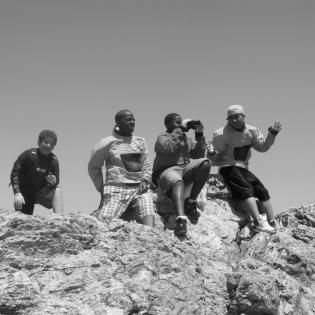We Are Guardians of the Earth (Private-Religious)
How does G-d define success? What does G-d expect of me? And, how can I do it?
Photo Credit: Teen Eco June 2009 – On top of Brooks by East Bay Regional Park District Public Affairs is licensed under CC by 2.0
We are commanded to care for all the works of Creation. Two traditional texts teach how we are to use our power in the worldthrough the work of two individuals: One offers a model of caring for those over whom we have economic power and the other, a model of caring for the physical environment. This unit also provides a comparison of success as defined by the world and success as defined by Biblical texts and Jewish traditions.We are told to fill the earth and master it. (Genesis 1:28) How we understand and internalize the concept of ‘mastery’ determines the course of our lives, our impact on the people we influence and, ultimately, the fate of the planet.
It would seem that contradictions abound in the Bible! Finding interpretations that allow these contradicting texts to coexist is both a traditional religious concern and a contemporary dynamic enterprise. It is also a pursuit that will determine how one comes to understand the role of Biblical imperatives in his/her personal life.
We are commanded to “master the earth”. How one elects to do that, is a product of one’s understanding of the concept of mastery. This lesson enables learners to create a personally meaningful model and action plan of mastery/stewardship based upon their interpretation of traditional texts.
The most important role models for learners demonstrate how one can live responsibly in our world while achieving success by contemporary measure. The great gift and challenge of Judaism is to bring holiness to the profane- to the worldly. The models offered in this lesson are successful in this world and they act as well as give voice to the ideal of caring and sharing our personal gifts and bounty.
